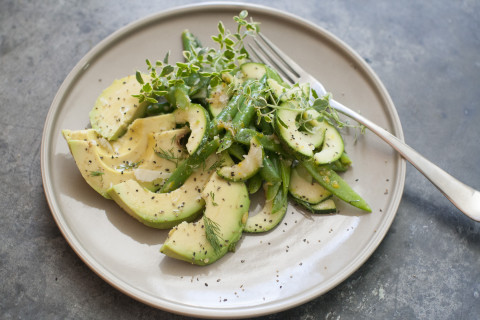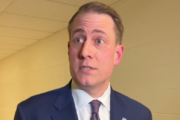Whether you’re doing the DASH diet, attempting Atkins or trying the TLC diet, finding the right mindset is your first step. Below, experts help set you up for long-term success, whether you’re trying to lose weight or just eat in a healthier way.
[See: The 10 Best Diets for Fast Weight Loss.]
Make a commitment to change. Starting a diet on a whim might work, but the most successful people are truly prepared to make a change, says Sheila Forman, a clinical psychologist in private practice in Santa Monica and author of “The Best Diet Begins in Your Mind.” It’s about incorporating changes into your life to make a lasting difference. “People have to have some sort of commitment and plan in mind,” she says. Within the classic five stages of change, she says, “I want to grab the person in the third stage, called ‘preparation.’ That’s where they’re thinking, ‘OK, I do want to eat healthier. What am I going to do?'” Preparation gets people ready for the next step: action.
Learn from past attempts. If you’ve failed at diets in the past, don’t blame yourself — just try a different approach, says Michelle Segar, author of “No Sweat: How the Simple Science of Motivation Can Bring You a Lifetime of Fitness.” To get mentally prepared for future success, people should think about and learn from what they’ve already attempted and whether that’s had any real sticking power, says Segar, who directs the Sport, Health, and Activity Research and Policy Center at the University of Michigan. That information can steer you in a better direction when deciding on the best diet for you.
Have an “if-then” plan in place. Being strategic and plotting key decision points makes it easier to avoid willpower pitfalls. An “if-then” plan can help, Segar says, such as “When I go to the grocery store, I’m going to do X, Y, Z,” or “At lunchtime, I’m going to do X, Y, Z.” “Getting very specific helps make the behavioral choice in the context automatic,” she explains. “[That] necessitates less self-control.”
[See: How to Weigh Yourself the Right Way.]
Add, don’t subtract. Deprivation can sap motivation. “I advocate more of a non-diet approach as a clinician,” Forman says. “But I support my clients when they want to add healthier food as one of their approaches, rather than take food away. Food plays an enormous emotional role in our lives. If we just yank it away without understanding [that role] and how else we might meet needs the food is meeting for us, it can lead to disaster.” To clients, she suggests: “Instead of saying, ‘I’ll never eat a cookie again,’ how about when you have a cookie, you also serve yourself some fruit?” Adding on instead of eliminating works well for many people, she says.
Eat mindfully. You don’t need to follow the MIND diet to be thoughtful about eating. “The premise of mindfulness eating is that we eat with attention and awareness,” Forman says. “It’s really the opposite of mindless eating.” With mindful eating, she says, there are no good or bad foods. But you’re aware of how much you eat, and you eat food with intention. “You’re tasting it,” she says. “You’re noticing its flavor. You’re noticing if it’s satisfying or not.” Over time, she says, excess food starts to fall away, and people who need to lose weight discover they’re consuming fewer calories. Mindfulness actually incorporates a little meditation — but it takes less than a minute, Forman says.
Be realistic, not rigid. With clients, Forman prefers to set behavioral goals. “Weight loss fluctuates, and there are so many variables over which we have little control, [such as] hormone cycles and salt retention,” she says. A behavioral goal, for instance, could be having a daily salad. The jury’s still out on whether routinely weighing yourself is helpful, but Forman believes that can lead to disappointment if scale numbers don’t reflect your efforts. Similarly, Segar says, too-rigid food rules can cause people to throw in the towel. “It’s the way we’ve been taught to be healthy — to follow very specific prescriptions.” she says. “But those prescriptions don’t translate from the science they’re based on to the messy lives everyone lives.” Instead, she says, people should think in terms of continuums of success.
Check your emotions. Two kinds of hunger exist. “There’s that physical hunger to satisfy our body’s requirement for nourishment,” Forman says. “Then there’s our emotional hunger that meets our requirement for some sort of emotional soothing,” a dynamic she’s explored in her book, “Do You Use Food to Cope?” The bottom line, she says, is “if you’re emotionally hungry, food isn’t going to satisfy you.” Learn to ask yourself: “What are you really hungry for?” she advises. Is it food, a friend or a hug? “The more you’re able to pursue that — the friend, the hug, the cry, the shout; whatever it is that you need — you won’t lean on the food as a coping mechanism.”
[See: 7 Reasons to Choose a Plant-Based Diet.]
Tie food choices to feeling good. “What we want is a daily, consistent, health-related choice to be associated with a continued positivity,” Segar says. “It could be ‘I feel more energy’ or “I feel better about myself when I make this choice.'”
More from U.S. News
15 Best Weight-Loss Diets at a Glance
11 Simple, Proven Ways to Optimize Your Mental Health
9 Foods That Can Keep Your Brain Sharp
Getting Mentally Ready to Start Any Diet originally appeared on usnews.com







